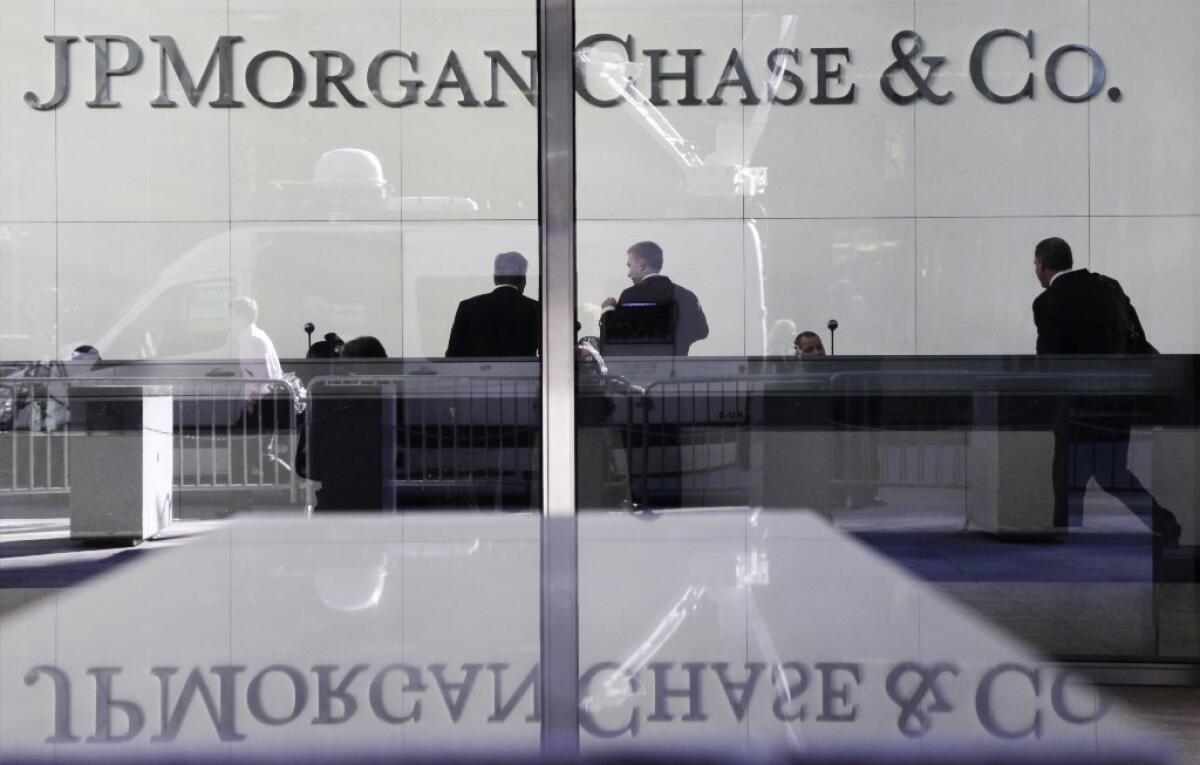Chase settles many debt collection abuse cases -- but not California’s

JPMorgan Chase will pay more than $200 million to settle probes of its debt-collection practices by federal authorities and 47 states -- not including California. Above, the bank’s Park Avenue headquarters in New York.
JPMorgan Chase & Co. will pay more than $200 million to settle allegations that it sold faulty credit card debts to third-party collectors, including accounts with legally flawed judgments and inaccurate and paid-off balances and debts owed by borrowers who had died.
The Consumer Financial Protection Bureau, which announced the settlement Wednesday, said the New York bank would pay $50 million or more in consumer refunds and an additional $136 million to the consumer bureau and 47 states that joined in the settlement.
California was not among the states that settled with Chase, the largest U.S. bank.
State Atty. Gen. Kamala Harris had sued the bank in May 2013, alleging fraudulent debt-collection practices against tens of thousands of Californians. That litigation continues in Los Angeles County Superior Court.
Wednesday’s settlement also requires Chase to pay a $30-million penalty to the Office of the Comptroller of the Currency, which regulates national banks, in connection with a settlement of related allegations brought by the agency two years ago.
Chase, which didn’t admit or deny wrongdoing, said it detected the collections issues in 2010 and stopped filing lawsuits to collect credit card debts in 2011.
“We are pleased to resolve these legacy issues and are working to complete our remediation of affected credit card customers,” the bank said.
The settlement also addressed accusations that Chase’s misleading debt-collections lawsuits against consumers were based on illegally sworn statements.
“Chase sold bad credit card debt and robo-signed documents in violation of law,” said Richard Cordray, the federal consumer protection agency’s director. “Today we are ordering Chase to permanently halt collections on more than 528,000 accounts and overhaul its debt-sales practices.”
State and federal regulators had said in 2013 that they were stepping up pressure on debt collectors over a flood of lawsuits rife with unsupported allegations against delinquent credit card holders.
In some cases, they said, borrowers weren’t even given notice of lawsuits against them until judges rendered default judgments for their failure to appear in court to defend themselves.
Follow @ScottReckard for news of banks and home loans
More to Read
Inside the business of entertainment
The Wide Shot brings you news, analysis and insights on everything from streaming wars to production — and what it all means for the future.
You may occasionally receive promotional content from the Los Angeles Times.











